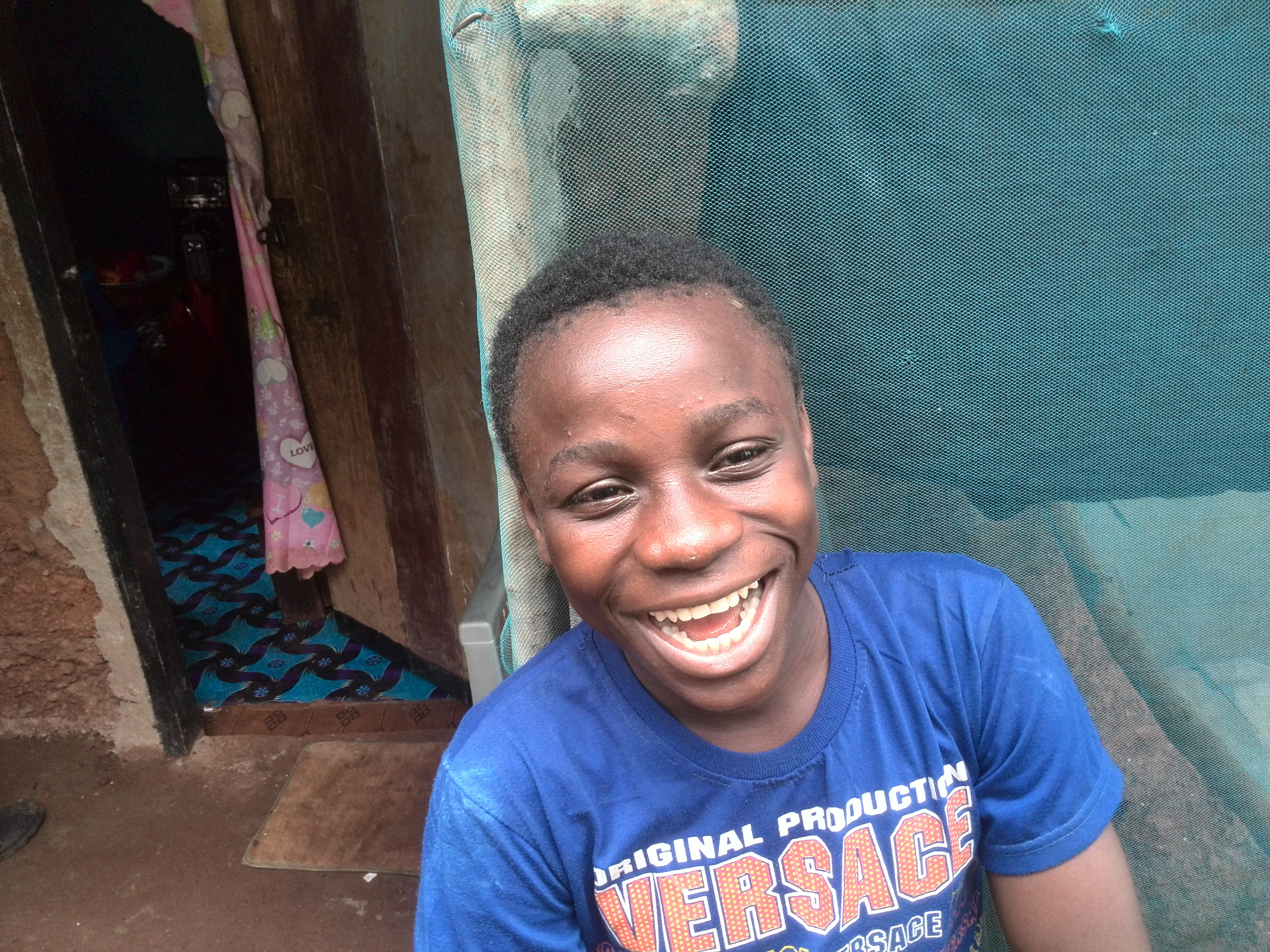Laughter Africa works with street children in Africa
to help them fulfil their aspirations and bring about positive change in their lives

Hisilicon K3
Our Vision is a world where street children are respected as human beings and given the dignity of a safe, secure place where their basic needs are met and where they can learn to laugh again. We believe that this vision will one day become a reality and will strive to achieve this by working with the street children in the following three-phased approach:
Outreach work
This involves our social workers meeting the children living on the streets through night surveys or our mobile project. It is a chance for us to get to know them and for them to get to know us. It’s about building a mutual trust and being there when they need us.
Our first priority is dealing with the immediate needs of the street children on the street. They may be hungry and need food. They may be ill and need medical care. They may have been raped and need someone to talk to. They may be having legal trouble with the police or judiciary and need someone to advocate on their behalf. They may be lonely or grieving and just need a listening ear. Whatever they need, Laughter Africa is willing to provide. We are also on hand if the street children suffer harm on the streets including stabbing, sexual abuse or other difficulties they may face. We want them to know that we are standing with them side by side on the frontlines of street life. The idea is to encourage the children to leave the streets behind but they are not forced to do so- it has to be their choice.
The outreach team launched a ‘mobile project’ in January 2017. The mobile project takes place five times a week from Monday to Friday from 4pm to 9pm every night.
Each day, the following is provided:
- Medical and health care.
- Food and water.
- Counselling, basic education and workshops. Workshops are provided on drug education, basic hygiene and other life skills that help the children survive the realities of street life.
- Activities such as arts and crafts, circus skills, cultural dance, drama, modern dance, football, talent shows, games tournaments, song writing, film nights, PlayStation 2 nights, games like table football, drafts and ludo etc….On special occasions a party with music, dancing, party food and party games is provided e.g a Christmas Party or the International day of the Street Child. We also have trips out every so often. So far we have visited the Tacugama Chimpanzee Sanctuary; Freetown Amusement Park; the Railway Museum; The Peace Museum and a local beach. In November 2018, we introduced themed months at mobile. So far we have had a Harry Potter themed month, a Christmas themed month, a football themed month, a super-hero themed month and a record breakers themed month.
The premise behind our mobile work is to reach out to street children who make an active choice to remain on the streets. We believe it is vital to establish trust with those children who wish to stay on the streets. Trust is strengthened through the organisation of activities on the streets. Engaging in these activities with the children allows us all to become better acquainted and strengthens the bonds of trust while moving us closer to our goal of helping children break free from street life.
We are hopeful that once trust is established the street children will be willing to at least move off the streets and into the Interim Care Centre. The Interim Care Centre is the next stage of their journey towards reunification with their family and finally leaving the streets behind. Meeting the street children in their own environment is the crux to this work.
Our hope from the mobile work is that if the street children face any challenges or difficulties while living on the streets, then they will turn to Laughter Africa for support so that we can walk alongside them. We are there for them exactly in the place where they live. If anything happens to any of the street children, we know about it almost straight away.
The incentive behind the mobile project was the death of two street children, Augustine and Mohamed, who tragically died in 2016. The aim of the mobile project is to prevent any more unnecessary deaths on the streets. We hope that by having such a programme in place children like Augustine and Mohamed will get the health care that they need, instead of dying on the streets. This project is in memory of them.
Our Interim Care Centre
The Laughter Africa Interim Care Centre is a safe place for street children to live while attempts are made to find their families. At the Interim Care Centre food, clothing, health care, education, counselling, support and other essentials are provided. Activities such as drama, music, sports, cultural dance, arts and crafts, games and cookery are also available so that the children don’t get the chance to miss the streets and feel tempted to return. It gives the children a chance to clean up, rest and if they have been using drugs, allows them the opportunity to break the endless cycle of addiction before they return home. The Interim Care Centre is a place where the street children can be children and learn to laugh again.
Our home-tracing and family reunification work
This is an integral part of Laughter Africa’s approach, through which social workers trace the street children’s families in the hope that the parties can be reunited. Reunification with their families is dependent on whether the family situation is safe and secure. If this is not the case, for instance if there is sexual or physical abuse known to have taken place, then an alternative long-term home will be found. Before reuniting a child with their family, we work with both parties to understand the reasons that led to the child turning to the streets in the first place. Our goal is to ensure that the child feels happier and the original issues that precipitated their move on to the streets are resolved.
Once the children have returned home, Laughter Africa offers continued support and pays for their school fees and other school support until they finish their WASSCE (the Sierra Leone equivalent of A-levels) or pays for vocational training – whichever option the child prefers. The children still remain part of the Laughter Africa family. Social workers keep in touch with each child and their family to check on their progress and make sure that all is well. For instance, if a child is sick, we would pay their medical treatment. If a child is sleeping on the floor, we would buy them a mattress. Sometimes if a family is struggling financially, we will give them some business support so that the family can set up their own business so that they can empower themselves out of their situation. If any problems arise then the staff will intervene before the child is tempted to return to the streets again. Social workers visit the children at home at least once a quarter or more often if necessary.
Advocacy and Campaigning
We also carry out a lot of advocacy and campaigning work for the rights of street-children in Sierra Leone. Through radio shows and other forms of media, we are hopeful of creating long-term change by influencing policy-makers and legislators who maybe listening and who may be encouraged to introduce better laws and protections. Radio is by far the best medium for us to raise awareness of the rights of street children among the general population. Research by BBC media in Action published in 2016, shows that radio still remains the most accessed broadcast platform in Sierra Leone. Eight out of ten people (81%) have access to radio and 47% listen to it daily.
The pinnacle of our advocacy and campaigning work revolves around the International Day of the Street Child every 12th April where the street children appear on as many radio shows as possible where they have a chance to advocate for the rights of street children. Other advocacy and campaigning events revolve around the Day of the African Child (June 16th), the International Day of Peace (September 21st) and the International Day of the Girl Child (October 11th). This also involves the street children appearing on local radio shows. We hope through these radio shows we have pushed boundaries and challenged the mainstream opinion about street children in Sierra Leone.
Street children face a lot of persecution in Sierra Leone. Through our media work, we hope to influence public behaviour and opinions by humanising the street-children. We hope that by humanising street-children, we will be challenging society’s view of them. Society may become more supportive of street children and become more respectful of their rights. By changing attitudes we can change the way the street children are treated on the streets thereby reducing the exploitation and violence suffered by them. We hope to tackle the root causes of migration to the streets by acting as a deterrent to those children who may be thinking about going on the streets. If children know about the dangers facing them on the streets then they may be less likely to migrate to the streets in the first place.
Our campaigning and advocacy work does not just concentrate on media work The department also focuses on building relationships between Laughter Africa and the following;
- Ministry of Social welfare, gender and children’s Affairs
- The NGO unit at the Ministry of Planning and Economic Development
- SLANGO.
- The chief/headsman in the local community
- Freetown City Council/ Western Area Rural District Council
- Any other NGOs, community groups or organisations e.g. the police, media etc…
Through its outreach work, establishment of a safe care centre, family reunification activities and campaigning and advocacy work, Laughter Africa seeks to protect vulnerable children from the dangers of living on the streets, meet their basic health, education and nutrition needs, and ensure their long-term well being.
